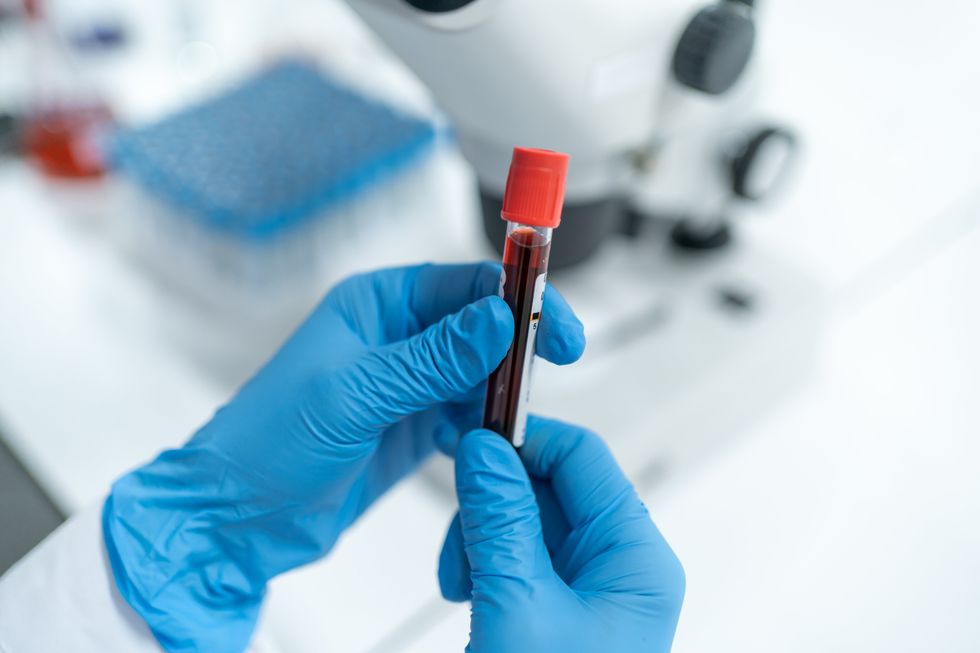Pinprick blood test could spot dementia, diabetes and cancer a decade early as scientists hail 'real gamechanger'

The test is a major step forward for preventive healthcare in Britain
Don't Miss
Most Read
Latest
UK Biobank has finished the world's biggest blood study, analysing samples from 500,000 volunteers to measure almost 250 different proteins, sugars, fats and other substances.
This massive achievement means simple pinprick blood tests could soon spot early warning signs of serious illnesses more than 10 years before any symptoms show up.
The breakthrough research opens the door to detecting conditions like diabetes, cancer and dementia far earlier than currently possible.
Scientists can now create detailed molecular profiles that reveal what's happening inside the body, combining this information with medical records to predict who might develop various diseases.
TRENDING
Stories
Videos
Your Say

The pinprick blood test could help stop diseases before they start
|GETTY
"It's going to be a real gamechanger for our work," says Dr Joy Edwards-Hicks from the University of Edinburgh, who researches how blood metabolite changes impact the immune system.
She believes these predictive tests will transform healthcare by focusing on stopping diseases before they start rather than treating them afterwards.
"It fits with the model of prevention that we are moving towards, to be able to send off a little pinprick blood sample and get an idea of your health," she explained.
"If we have early predictors of disease, we can tell someone in their 40s that their biomarkers are not looking good for their age and advise on changes they could make."
The partnership between UK Biobank and Nightingale Health measured hundreds of vital metabolites in blood samples, including amino acids, hormone precursors and waste products like urea.
These molecules form when our bodies process food, drinks and medicines, or when organs use energy and repair tissues.
When organs malfunction, the metabolic profile changes in telling ways. Ammonia levels rise with liver disease.
Damaged kidneys push up urea and creatine. Increased lactate indicates muscle damage, while cancer causes glucose uptake to surge.
LATEST DEVELOPMENTS
What makes metabolic profiles particularly valuable is their comprehensive nature. They capture not just genetic factors but also environmental influences - diet, exercise, pollution exposure, and stress all leave their mark on these molecular signatures.
"These metabolic profiles capture all of the genetic predisposition and the downstream consequences of that, as well as the environmental exposures, so it gives us a snapshot of a person's physiological state," explains Dr Julian Mutz from King's College London.
"It's also highly dynamic, whereas genetics, for example, is fixed."
Dr Mutz focuses on using these profiles to forecast dementia risk. Early detection 10 to 15 years ahead means doctors can help patients take steps to lower their chances of developing the condition.
The expanded data should also improve predictions for less common neurodegenerative conditions like frontotemporal dementia.

The predictive tests could transform healthcare
| GETTYAt Oxford University, molecular epidemiologist Dr Najaf Amin discovered the profiles reveal how ageing differs between men and women, particularly for age-related cancers.
"We are now going to dive further into the use of medications among males and females," she explained.
Our Standards: The GB News Editorial Charter











